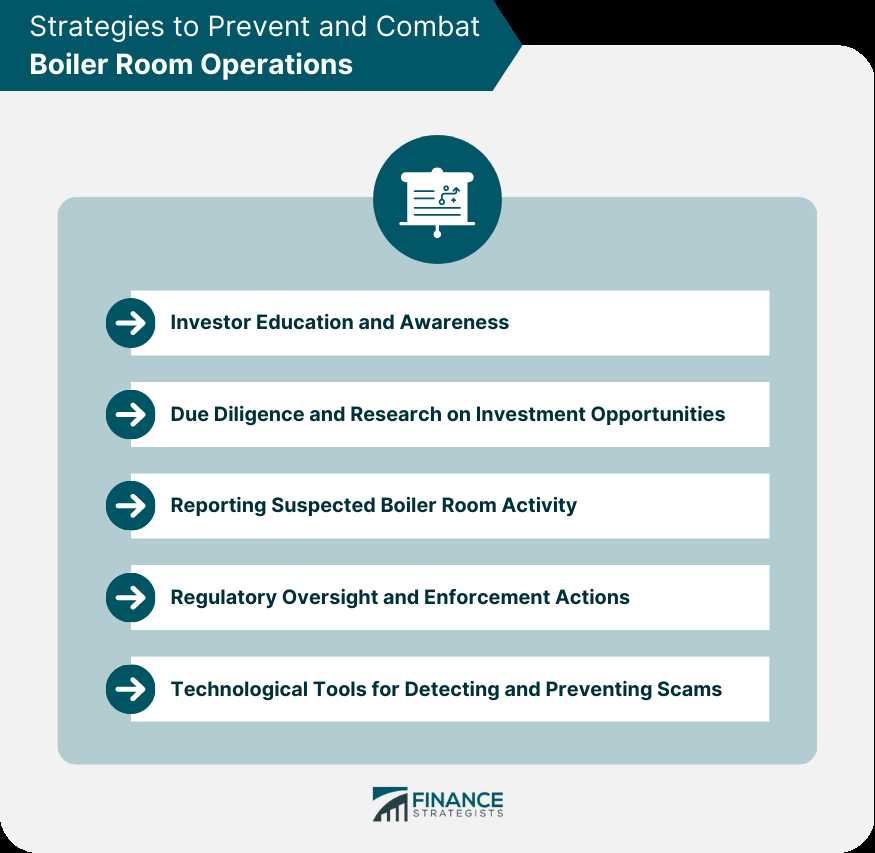Definition and Explanation of Boiler Room Operations
A boiler room operation is a fraudulent scheme that involves high-pressure sales tactics to convince individuals to invest in fraudulent or worthless securities. The term “boiler room” originates from the practice of using aggressive sales tactics in small, cramped offices that resemble boiler rooms.
The brokers or salespeople working in a boiler room operation are often trained to use persuasive techniques, such as creating a sense of urgency or promising high returns on investment. They may also use deceptive practices, such as providing false information or withholding important details about the investment opportunity.
Boiler room operations can take various forms, including cold calling potential investors, sending unsolicited emails or messages, or advertising fraudulent investment opportunities through social media or online platforms. These operations often operate outside of regulatory oversight, making it difficult for authorities to track and prosecute those involved.
To protect themselves from boiler room operations and common scams, investors should exercise caution when approached with investment opportunities that seem too good to be true. It is essential to conduct thorough research on the investment and the individuals or companies offering it, as well as to seek advice from trusted financial professionals before making any investment decisions.
Overview of Common Scams in Boiler Room Operations

Boiler room operations are notorious for their fraudulent activities, targeting unsuspecting individuals and luring them into investment scams. These scams are carefully crafted to appear legitimate, often using high-pressure sales tactics and persuasive techniques to convince victims to invest their hard-earned money.
1. Pump and Dump

2. Advance Fee Fraud
Another common scam is the advance fee fraud, where fraudsters promise high returns on investments but require victims to pay an upfront fee or provide personal information before they can access these returns. Once the victims have made the payment or shared their personal information, the fraudsters disappear, leaving the victims empty-handed.
3. Ponzi Schemes
4. Binary Options Scams

Binary options scams involve fraudsters enticing victims to invest in binary options, which are financial products with a fixed payout and expiration time. The fraudsters manipulate the trading platform to ensure that victims consistently lose their investments. They may also refuse to process withdrawal requests, effectively stealing the victims’ funds.
5. Boiler Room Brokerage Scams

In boiler room brokerage scams, fraudsters pose as legitimate brokers and use high-pressure sales tactics to convince victims to invest in fraudulent or nonexistent stocks, bonds, or other financial products. The fraudsters often provide false information about the investments’ potential returns and downplay the risks involved, leading victims to make uninformed investment decisions.
| Common Scam | Description |
|---|---|
| Pump and Dump | Fraudsters artificially inflate stock prices and sell them at a profit, leaving investors with losses. |
| Advance Fee Fraud | Fraudsters promise high returns but require upfront fees or personal information before delivering. |
| Ponzi Schemes | Fraudsters use funds from new investors to pay returns to earlier investors, eventually collapsing the scheme. |
| Binary Options Scams | Fraudsters manipulate binary options trading platforms to ensure victims consistently lose their investments. |
| Boiler Room Brokerage Scams | Fraudsters pose as brokers and use high-pressure sales tactics to convince victims to invest in fraudulent or nonexistent financial products. |
It is crucial for individuals to be aware of these common scams in boiler room operations and to exercise caution when approached by individuals offering investment opportunities. Conducting thorough research, seeking advice from trusted financial professionals, and being skeptical of high-pressure sales tactics can help protect individuals from falling victim to these fraudulent schemes.

Emily Bibb simplifies finance through bestselling books and articles, bridging complex concepts for everyday understanding. Engaging audiences via social media, she shares insights for financial success. Active in seminars and philanthropy, Bibb aims to create a more financially informed society, driven by her passion for empowering others.
